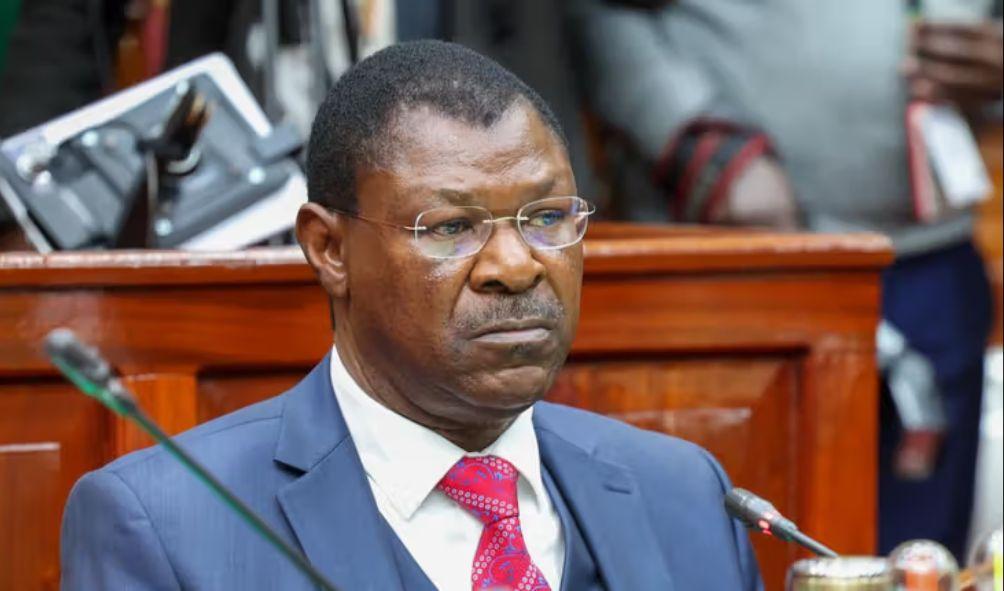Why MPs are Against Media Focus on CS Nominees’ Wealth Declarations
The examination of President William Ruto’s Cabinet nominees by the National Assembly Committee on Appointments has sparked a lively debate in Parliament, centering on how the media has reported the nominees’ wealth.
The debate focused on the clarity of wealth declarations and their effect on public opinion.
The media reported that Kithure Kindiki, the nominee for Interior CS, saw his net worth grow from Sh544 million to Sh694 million between October 2022 and August 2024, an increase of Sh150 million.
Soipan Tuya, the nominee for Defence CS, disclosed that her net worth rose from Sh156 million in October 2022 to Sh243 million by August 2024.
Alice Wahome, the nominee for Lands Cabinet Secretary, reported a substantial rise in her net worth to Sh327.65 million, up by Sh109 million from her previous value of Sh218.4 million in 2022.
Committee members, under the leadership of Speaker Moses Wetangula, voiced concerns that the media’s focus on the candidates’ net worth overshadowed their qualifications and suitability for office.
Wetangula highlighted that the vetting process included many detailed questions about the nominees’ abilities, experiences, and plans, but he criticized the media for emphasizing their wealth.
He remarked, “Yesterday, we had five candidates. We asked them many questions, ending with this minor question about their net worth, but the media only picked up on the net worth and forgot everything else.”
Wetangula called for more balanced media reporting, stressing that the committee’s primary responsibility was to assess the nominees’ fitness for public office, not their wealth.
ALSO READ:
- “Two Groups, One Agenda”: Gachagua Accuses Raila of Secret Political Deals
- Exclusive: Ida Odinga’s 75th Birthday Party in Karen (Photos)
- FKF President Discloses Exact Amount Paid to Harambee Stars Players
- Gachagua’s Ally Senator John Methu Admits Ruto Might Win 2027 Elections
- Maraga Explains Why He Hasn’t Campaigned in Kisii Despite 2027 Bid
MP Kimani Ichung’wa acknowledged the media’s right to report on wealth declarations but noted that some MPs might have greater wealth than the nominees, humorously suggesting Junet Mohamed might be richer than the Cabinet nominees.
This led to a light-hearted exchange, with Mohamed playfully responding, “That is being malicious, and he has been sent to finish me,” eliciting laughter from the assembly.
Ichung’wa emphasized that wealth should not be viewed negatively, stressing that transparency in wealth declarations is essential for maintaining public trust.
Speaker Wetangula further explained that wealth declaration questions were typically asked towards the end of interviews, with nominees providing detailed answers.
For example, Defence nominee Soipan Tuya explained that her wealth increase was due to the appreciation of her assets, such as land and a house in Nairobi.
Ichung’wa highlighted that Cabinet Secretaries, like MPs, can access mortgage facilities to acquire property in Nairobi, noting that Tuya’s tenure as a three-term MP justified her financial status.
Another MP added that Tuya had also declared her outstanding loans, including a Sh49 million loan, which was deducted from her net worth, praising the level of transparency and urging the media to consider the full context.
Gladys Boss contributed by discussing the legal and ethical aspects of wealth declarations, clarifying that they are meant for transparency and accountability, not as disqualifiers.
ALSO READ: MP Oscar Sudi Sparks Fury Flaunting KSh 17M Watch Amid Kenyan Struggles(Video)
She explained that the wealth declaration forms serve as a reference for future investigations if corruption allegations arise and that these declarations are held by the Ethics and Anti-Corruption Commission (EACC), accessible only with a court order if necessary.
Junet Mohamed agreed that wealth should not be stigmatized, stating, “There is no harm in somebody being rich, and it is not a crime for somebody to be poor.”
He defended the media’s role, emphasizing the importance of transparency in wealth acquisition, especially given concerns about sudden wealth accumulation.
Mohamed illustrated that while gradual wealth accumulation over a career is understandable, rapid increases might raise questions, explaining, “The question that has come up is, let’s say you worked for 30 years and made Sh400 million. You work for two years and you’ve made Sh150 million.”
The discussion also explored the media’s influence on public perception. MP Robert Mbui noted that media focus on wealth declarations was not new, recalling similar coverage in past vetting processes.
He suggested that the media’s emphasis on wealth might be due to its perceived newsworthiness and public interest in the financial status of officials.
Junet Mohamed again lightened the mood by humorously claiming Kimani Ichung’wa was worth Sh5 billion, prompting laughter and playful banter, with Speaker Wetangula jokingly questioning why Ichung’wa’s wealth was understated.
The vetting process for President Ruto’s Cabinet nominees has highlighted the intricate relationship between transparency, public perception, and media responsibility.
Why MPs are Against Media Focus on CS Nominees’ Wealth Declarations
